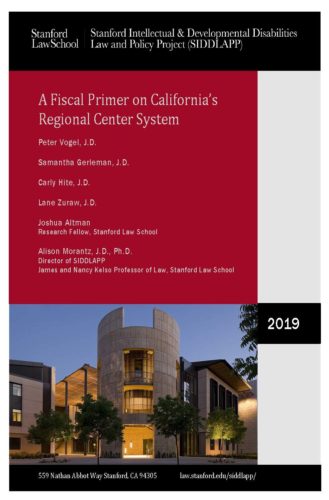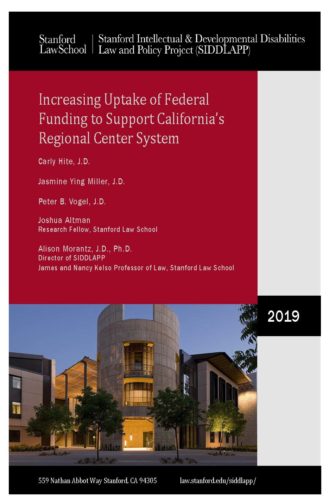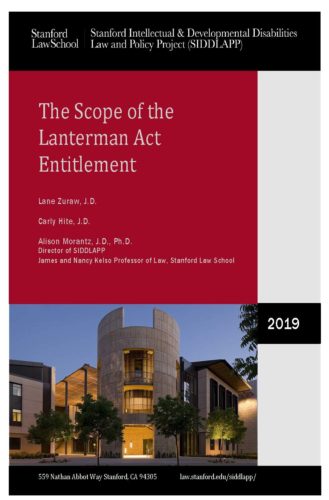Protecting the Rights of Individuals with Developmental Disabilities in a Precarious Funding Climate
In 1977, California became the first state in the US to grant individuals with developmental disabilities (DD) the right to the services and supports they need to live more independent and normal lives. The Lanterman Act, now codified in the California Welfare and Institutions Code, declared that “[a]n array of services and supports should be established which is sufficiently complete to meet the needs and choices of each person with developmental disabilities, regardless of age or degree of disability, and at each stage of life, and to support their integration into the mainstream life of the community.” To this day, California is the only state in which the right of individuals with DD to be supported in the least restrictive environment is construed as a civil right and an individual entitlement, not merely a right to “take a number and wait in line” until sufficient state resources become available to meet their service and support needs.
To effectuate the goals of the Lanterman Act, California divides responsibility between the Department of Developmental Services (DDS), a state agency, and a network of twenty-one private, nonprofit corporations called “regional centers” that are funded by DDS. Each regional center serves a different area of the state, providing services and supports to individuals with developmental disabilities in the local community. DDS is responsible for monitoring the regional centers and ensuring that they implement the Lanterman Act.
In the early years after the Act’s passage, DDS (and in turn, the regional centers) were largely funded through the state’s general fund. Since the mid-1980s, however, a sizable portion of funding has been provided by the federal government. Through a special waiver program under Medicaid, individuals with DD who would otherwise be forced to reside in institutions can receive the services and supports they need to live in the community.
The federal spending cuts contemplated by the Trump Administration, however, could pose an existential threat to the viability of this system. If the funds available to California through the Medicaid waiver program are significantly curtailed, it will be far more difficult for the state to support the integration of individuals with DD into the community.
This policy lab will explore whether – and if so, how – the civil rights and individual entitlement embodied in the Lanterman Act can be preserved in a reduced funding environment. Students will investigate the nature and scope of the rights provided under the Act; the corresponding obligations under the Act of the legislature, DDS, and regional centers; and the tools that different branches of state government might bring to bear to effectuate the goals of the Act if the funding available through Medicaid is significantly reduced.
Faculty
Clients
Our co-clients are Disability Rights California, a nonprofit founded in 1978 whose mission is to “educate, investigate, and litigate to advance and protect the rights of Californians with disabilities” (see http://www.disabilityrightsca.org/), and the California State Council on Developmental Disabilities, “established by state and federal law as an independent state agency to ensure that people with developmental disabilities and their families receive the services and supports they need . . . to live independently and to actively participate in their communities” (see https://scdd.ca.gov/).



